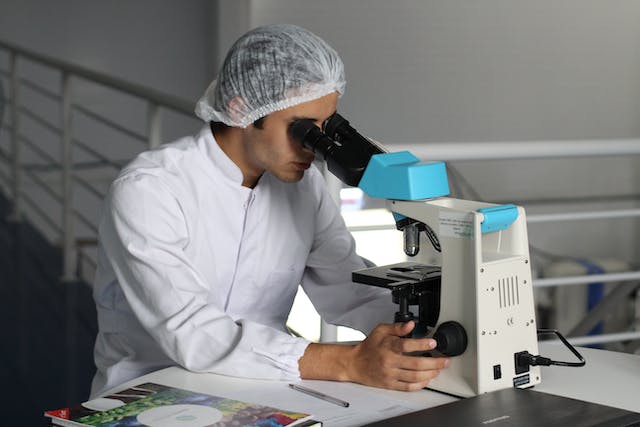German researchers have discovered a potential solution to drug-resistant bacteria in the human nose. They identified a new substance, epifadin, with promising antibacterial properties. This finding suggests a novel avenue for doctors in the battle against antibiotic-resistant germs.
Staphylococcus epidermidis bacterial strain can fight against germs
Epifadin is derived from certain strains of Staphylococcus epidermidis bacteria located in nasal mucous membranes and skin. It falls into a recently discovered category of antimicrobial compounds, suggesting its potential use in the development of novel antibiotics.
The human body hosts microbiomes in the nose, skin, and intestines, consisting of both beneficial and harmful bacteria. Disruption of this balance can lead to the proliferation of disease-causing bacteria. Staphylococcus epidermidis, a common resident in human microbiomes, produces epifadin to outcompete other microorganisms. Epifadin has demonstrated effectiveness against bacteria, including the antibiotic-resistant Staphylococcus aureus (MRSA), commonly found in hospitals.
The University of Tübingen researchers recently discovered the antibiotic substance epifadin in the human microbiome, following their identification of Lugdunin in 2016. In laboratory studies, epifadin demonstrated efficacy against Staphylococcus aureus by damaging its cell membrane.
However, its high instability and short lifespan limit its activity to a few hours, confining its impact to a local level. This local effect may be advantageous, potentially minimizing the adverse effects on beneficial bacteria associated with broad-spectrum antibiotics. Dr. Bernhard Krismer, leading the research team, encountered challenges in dealing with the instability of epifadin.
Interpreting lab data challenging to scientists
In a statement, Dr. Krismer of the Interfaculty Institute of Microbiology and Infection Medicine Tübingen (IMIT) expressed the challenges faced in interpreting intriguing but unstable laboratory data. Despite difficulties, the researcher highlighted the importance of persisting with the research, attributing success to tenacity and a high frustration tolerance.
Professor Andreas Peschel, a microbiology expert at the University of Tübingen, underscored the pressing demand for new antibiotics amid the growing threat of multidrug-resistant bacteria.
Future research will concentrate on gaining a more thorough understanding of the structure and effects of epifadin. To overcome its perishable nature, scientists intend to employ chemical synthesis to generate stable, artificial molecules with a resemblance to epifadin.


